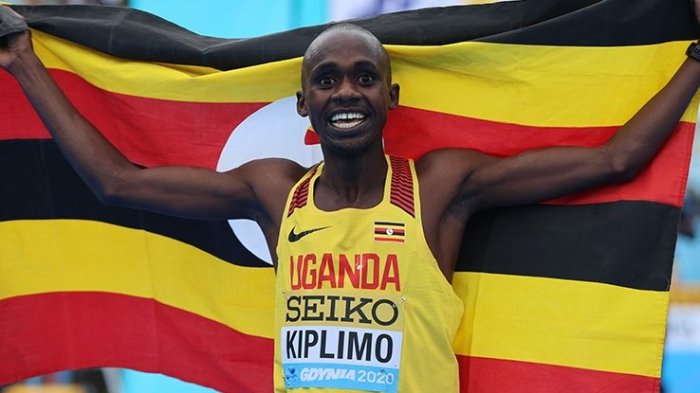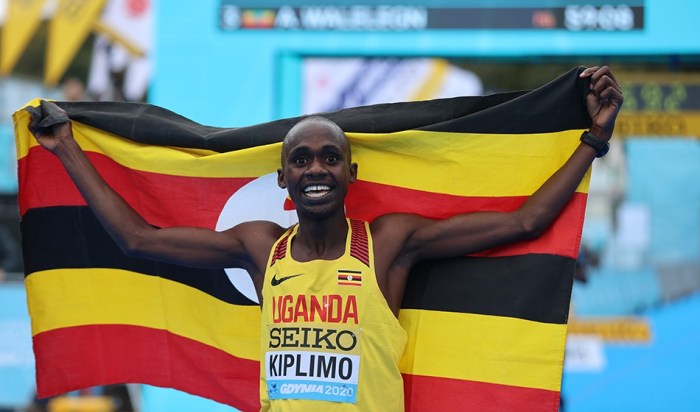Jacob is training for a marathon – Jacob’s unwavering determination to conquer the marathon is a testament to the indomitable spirit that resides within us all. As he embarks on this arduous journey, we delve into the intricate details of marathon training, exploring the physical, nutritional, and mental challenges that lie ahead.
From meticulously crafted training plans to expert insights on gear and equipment, this guide serves as an invaluable resource for Jacob and any aspiring marathon runner seeking to reach the pinnacle of their athletic potential.
Training Plan

Training for a marathon requires a comprehensive and structured plan that gradually increases distance and intensity over time. The typical schedule includes a combination of long runs, tempo runs, interval training, and recovery days.
Sample Training Plan for Jacob
Here is a sample training plan for Jacob, tailored to his fitness level and marathon goal:
- Weeks 1-4:Gradually increase weekly mileage by 10-15%. Focus on building a solid aerobic base with easy runs.
- Weeks 5-8:Introduce tempo runs and interval training. Tempo runs improve lactate threshold, while interval training enhances speed and endurance.
- Weeks 9-12:Increase long run distance gradually. Include hill workouts to build strength and stamina.
- Weeks 13-16:Peak training period. Maintain high mileage and intensity. Consider a mock race to test fitness and strategy.
- Weeks 17-20:Taper off mileage and intensity to allow for recovery and prevent burnout.
- Week 21:Final long run, shorter than peak distance. Focus on maintaining fitness and confidence.
Importance of Rest and Recovery
Rest and recovery are crucial for marathon training. Active recovery, such as cross-training or yoga, promotes blood flow and reduces muscle soreness. Adequate sleep and nutrition support muscle repair and energy replenishment.
Nutrition

Marathon runners have high nutritional needs to fuel their training and recovery. A balanced diet rich in carbohydrates, protein, and healthy fats is essential.
Nutritional Needs of a Marathon Runner
- Carbohydrates:Primary energy source for muscles. Consume 6-10 grams per kilogram of body weight daily.
- Protein:Builds and repairs muscle tissue. Aim for 1.2-1.7 grams per kilogram of body weight daily.
- Healthy Fats:Provide energy and support hormone production. Include omega-3 fatty acids in the diet.
Sample Meal Plan for Jacob
Here is a sample meal plan for Jacob, providing approximately 2,500-3,000 calories per day:
| Meal | Sample Foods |
|---|---|
| Breakfast | Oatmeal with fruit and nuts, whole-wheat toast with peanut butter |
| Lunch | Grilled chicken salad with brown rice, lentil soup with whole-wheat bread |
| Dinner | Salmon with roasted vegetables, quinoa with grilled tofu |
| Snacks | Fruit, yogurt, trail mix, whole-wheat crackers with cheese |
Importance of Hydration
Staying hydrated is crucial for marathon performance. Drink plenty of fluids, especially water, before, during, and after training and racing. Electrolyte drinks can replenish electrolytes lost through sweat.
Gear and Equipment: Jacob Is Training For A Marathon
The right gear and equipment can enhance comfort and performance during marathon training and racing.
Essential Gear and Equipment
- Running Shoes:Provide support, cushioning, and stability. Consider different types for different foot types and running styles.
- Clothing:Breathable, moisture-wicking fabrics help regulate body temperature and prevent chafing.
- Hydration Pack or Belt:Carries water and electrolyte drinks for convenient hydration during long runs.
- GPS Watch or Running App:Tracks distance, pace, and other metrics to monitor progress and stay on schedule.
- Foam Roller or Massage Gun:Helps reduce muscle soreness and promote recovery.
Benefits and Drawbacks of Different Types of Running Shoes
Different types of running shoes offer specific benefits and drawbacks:
| Type | Benefits | Drawbacks |
|---|---|---|
| Neutral | Balanced support and cushioning for most foot types | May not provide enough support for overpronators or underpronators |
| Stability | Additional support for overpronators (feet that roll inward) | May be less flexible and comfortable for neutral runners |
| Motion Control | Maximum support for severe overpronation | Can be bulky and less responsive |
Importance of Proper Clothing
Proper clothing can regulate body temperature, prevent chafing, and improve comfort during marathon training and racing. Choose breathable, moisture-wicking fabrics and avoid cotton, which absorbs sweat and can cause chafing.
Mental Preparation

Running a marathon requires significant mental preparation and resilience. Training for and completing a marathon is a physical and emotional challenge.
Mental Challenges of Running a Marathon
- Self-Doubt:Questioning abilities and doubting success.
- Pain and Discomfort:Physical pain and discomfort can test mental limits.
- Boredom and Monotony:Long training runs can become tedious and mentally draining.
- Fear of Failure:The pressure to perform and achieve personal goals.
Tips for Staying Motivated and Focused
- Set Realistic Goals:Break down the marathon into smaller, achievable milestones.
- Find a Training Partner or Group:Shared experiences and support can boost motivation.
- Listen to Music or Podcasts:Create playlists or listen to motivational content during training runs.
- Visualize Success:Picture yourself crossing the finish line and achieving your goals.
Importance of Positive Self-Talk
Positive self-talk can help overcome mental challenges and build confidence. Use positive affirmations and encourage yourself throughout training and racing.
Race Day Strategy
A well-planned race day strategy can maximize performance and minimize risks during the marathon.
Different Race Day Strategies, Jacob is training for a marathon
- Even Pacing:Maintaining a consistent pace throughout the race.
- Negative Split:Running the second half faster than the first half.
- Positive Split:Running the first half faster than the second half.
Tips for Pacing and Managing Energy
- Start Conservatively:Avoid starting too fast and depleting energy early.
- Listen to Your Body:Adjust pace as needed based on how you feel.
- Use Aid Stations:Take advantage of aid stations for hydration, nutrition, and cooling.
- Fuel Wisely:Consume energy gels or sports drinks at regular intervals.
Importance of Mental Toughness
Mental toughness is crucial for overcoming challenges and staying focused during the marathon. Practice visualization techniques and positive self-talk to build mental resilience.
Recovery
Proper post-marathon recovery is essential for physical and mental well-being.
Importance of Post-Marathon Recovery
Recovery allows the body to repair itself, reduce muscle soreness, and replenish energy stores.
Tips for Reducing Muscle Soreness and Inflammation
- Rest:Take several days off from running to allow muscles to recover.
- Ice Baths or Cold Compresses:Apply ice to sore muscles to reduce inflammation.
- Massage:Gentle massage can promote blood flow and reduce muscle tension.
- Stretching:Perform light stretching to improve flexibility and range of motion.
Importance of Rest and Relaxation
Rest and relaxation are essential for mental and emotional recovery after the marathon. Engage in activities that promote stress reduction and relaxation.
Top FAQs
How can I create a personalized training plan for a marathon?
A personalized training plan should be tailored to your fitness level, experience, and goals. Consider consulting with a certified running coach or using an online training platform that offers customized plans.
What are the most important nutritional considerations for marathon runners?
Marathon runners require a balanced diet rich in carbohydrates, protein, and healthy fats. Adequate hydration is also crucial, especially during training and on race day.
How can I stay motivated and focused during marathon training?
Set realistic goals, find a training partner or group for support, and engage in positive self-talk. Visualizing your success and celebrating milestones can also boost motivation.